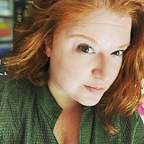defining religion (1)
policing religion
I had a conflict on Tuesday, so I still need to watch Let the Fire Burn. What did y’all think of the film? How did Evans’ introduction to MOVE: An American Religion help you better understand this tragedy?
What we’re reading
- Evans, “Progress”
- Evans, “Policing Religion”
Evans, “Progress”
CW for state-sanctioned violence against Black people
I have to say, this sentence:
In just two hundred years, Americans had conquered the entire continent, spreading into fifty states as far flung as Hawaii and Alaska
is really terrifying in the context of violent imperialism — which is precisely why the MOVE Family protested the re-enactment of the Continental Congress and the events leading up to the bicentennial (Evans 2020, 57–58).
Things to think about as you’re reading this chapter:
- Why was MOVE so critical of the American ideal of “progress?”
- How did they structure their lives and their movement in resistance to progress?
- How did law enforcement respond to MOVE’s acts of resistance?
Evans, “Policing Religion”
CW for state-sanctioned violence against Black people
Law enforcement agencies have, at times throughout American history, exercised the power to define religion — to demarcate what is “true religion” from false, to conclude when someone’s beliefs and practice are authentically religious and when they are mistaken, and to decide which groups should flourish and which should be suppressed. As the contributors to The FBI and Religion have shown, the Federal Bureau of Investigation was invented to “establish racial, ethnic, economic, and social order” — a task that frequently pitted them against mostly Black religious groups deemed threatening to this order. (Evans 2020, 124)
How did surveillance shape MOVE? How does the surveillance of MOVE reflect broader law enforcement attitudes toward religious innovation, especially racialized religious innovation?
One effect of the preemptive policing of religious groups — surveillance, infiltration, and subversion, before any crimes have been committed — is to place them outside the boundaries of true religion. (Evans 2020, 148)
Why does it matter that law enforcement helps define religion? What are the consequences of law enforcement defining religion?
